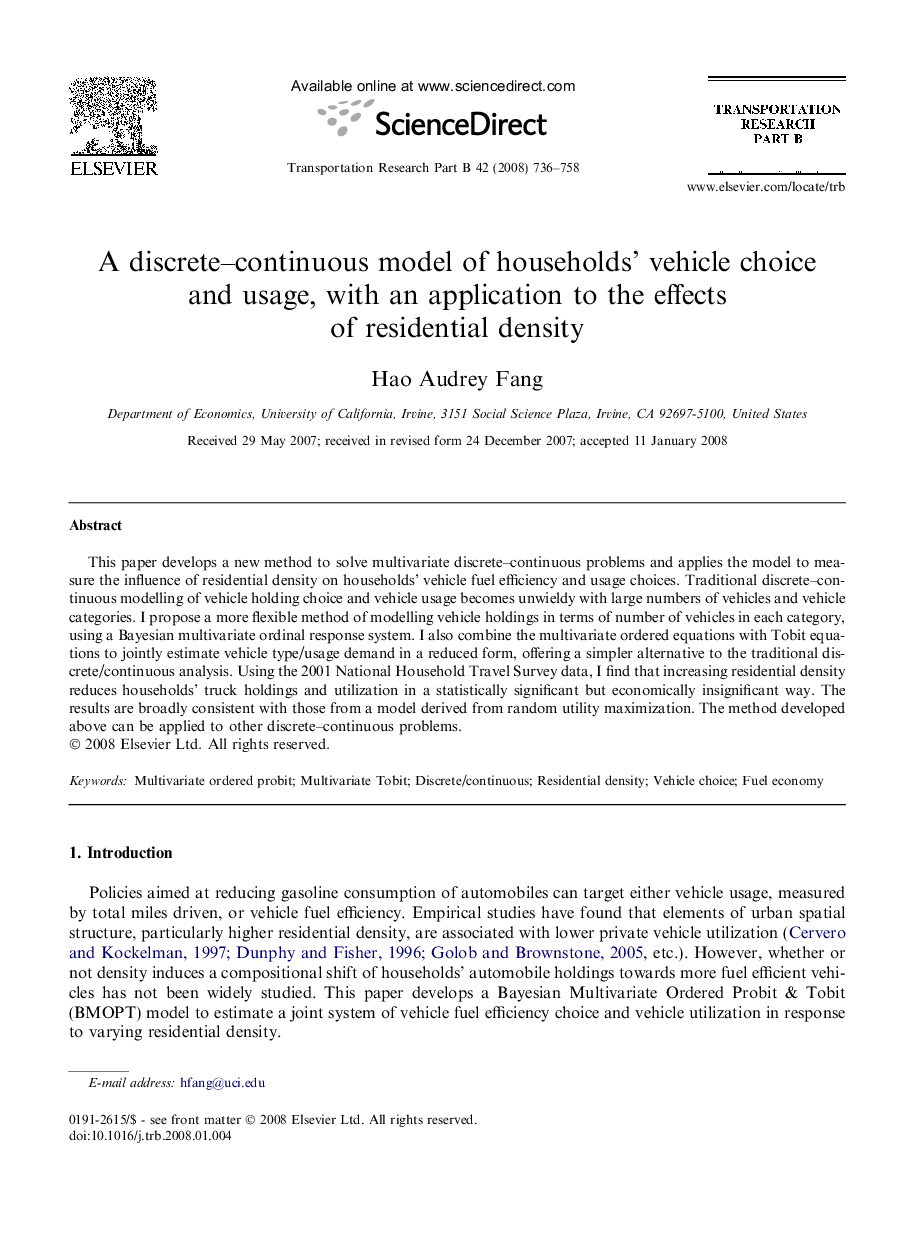| Article ID | Journal | Published Year | Pages | File Type |
|---|---|---|---|---|
| 1132604 | Transportation Research Part B: Methodological | 2008 | 23 Pages |
This paper develops a new method to solve multivariate discrete–continuous problems and applies the model to measure the influence of residential density on households’ vehicle fuel efficiency and usage choices. Traditional discrete–continuous modelling of vehicle holding choice and vehicle usage becomes unwieldy with large numbers of vehicles and vehicle categories. I propose a more flexible method of modelling vehicle holdings in terms of number of vehicles in each category, using a Bayesian multivariate ordinal response system. I also combine the multivariate ordered equations with Tobit equations to jointly estimate vehicle type/usage demand in a reduced form, offering a simpler alternative to the traditional discrete/continuous analysis. Using the 2001 National Household Travel Survey data, I find that increasing residential density reduces households’ truck holdings and utilization in a statistically significant but economically insignificant way. The results are broadly consistent with those from a model derived from random utility maximization. The method developed above can be applied to other discrete–continuous problems.
